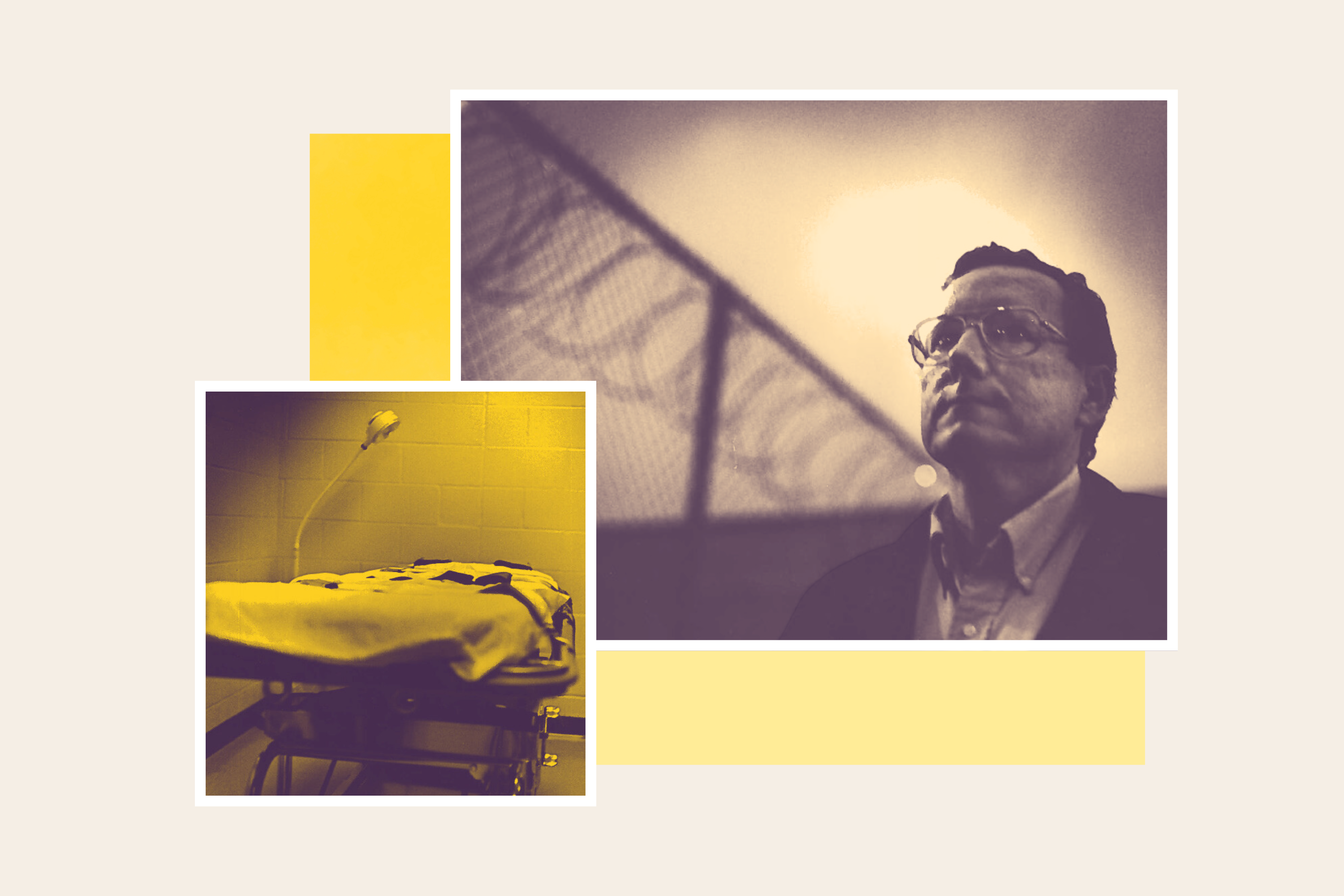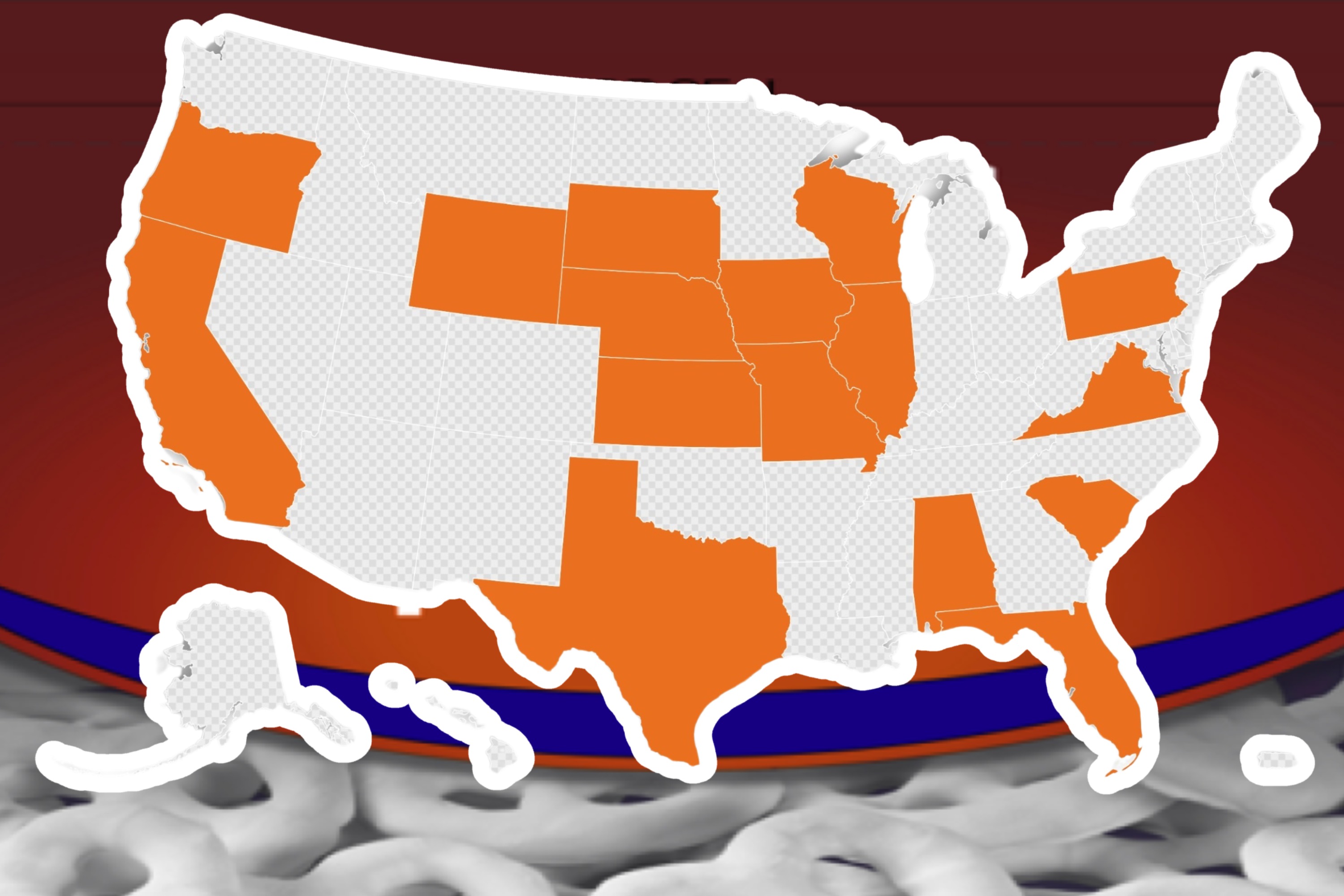The day Joe Biden was inaugurated as only the second Roman Catholic to attain the White House, the head of the U.S. Conference of Catholic Bishops criticized the new president's support of "the continued injustice of abortion." Biden's presence in the Oval Office gave new life to the ongoing debate among bishops as to whether pro-choice Catholic politicians should be denied access to Holy Communion. The American bishops have clashed with Pope Francis himself over the issue. This week the Conference meets in Baltimore for its annual conference, and the Communion question is on the agenda.
The Most Rev. Salvatore Cordileone, the Catholic archbishop of San Francisco and an outspoken conservative, believes pro-choice politicians should not be offered Communion. In 2008, while auxiliary bishop of San Diego, he helped lead the fight for California's Proposition 8, which defined marriage as a union between a man and a woman. In 2015, he warned teachers at four local Catholic high schools that they could not publicly support homosexual acts, embryonic stem cell research and contraception. In September 2020, he took on the state of California for limiting indoor church services while giving latitude to shopping malls.
This past September, he asked Catholics to pray and fast for a "conversion of heart" of House Speaker Nancy Pelosi, a Catholic who campaigns for abortion rights. He also placed editorials in major newspapers slamming pro-choice Catholic politicians—he didn't mention Biden by name—for being on the wrong side of the abortion debate. Biden struck back by scheduling an Oct. 30 meeting with the Pope.
Newsweek Contributing Editor for Religion Julia Duin spoke to Archbishop Cardileone about the intersection of religion and politics, and what to expect from the bishops' conference.
This transcript has been lightly edited for space and clarity.
Newsweek: When asked about his meeting with the pope, President Biden said, "We just talked about the fact he was happy that I was a good Catholic and I should keep receiving Communion." Would you agree that Biden is a "devout Catholic?"
Archbishop Cordileone: Of course that depends on what you mean by "devout." I believe he feels that in his heart. I can understand the Catholic world he grew up in and I was kind of at the tail end of that. He's gone through some horrible tragedies in his life, and I can't help but think that his faith is helping him get through that. So, I believe in his heart he feels that. But there's a disconnect here when there's some basic values of our faith that are not even denominationally specific: they have to do with some basic human rights—that our faith helps us to understand better—that he's acting against. There seems to be a disconnect there and a matter of integrity.
Do you think Pope Francis did tell him that he should keep on receiving Communion?
We don't know for sure. Personally, I don't think the pope said that. Popes normally they don't say things like that. The Vatican hasn't confirmed that he said that, so I don't think he said that, myself. He may have said something that President Biden took to mean that. This has happened to me a lot, and it probably happens to anyone in the position of leadership. Like, I say one thing and the person hears something else and sometimes it's very different from what I actually said. So it could be a situation such as that, but I would find it hard to believe that the pope said exactly that.
If President Biden misinterpreted what Francis said, that puts the Vatican in the position of either remaining silent or saying the president is mistaken.
If they want to be respectful of everyone, it is a very tough spot.
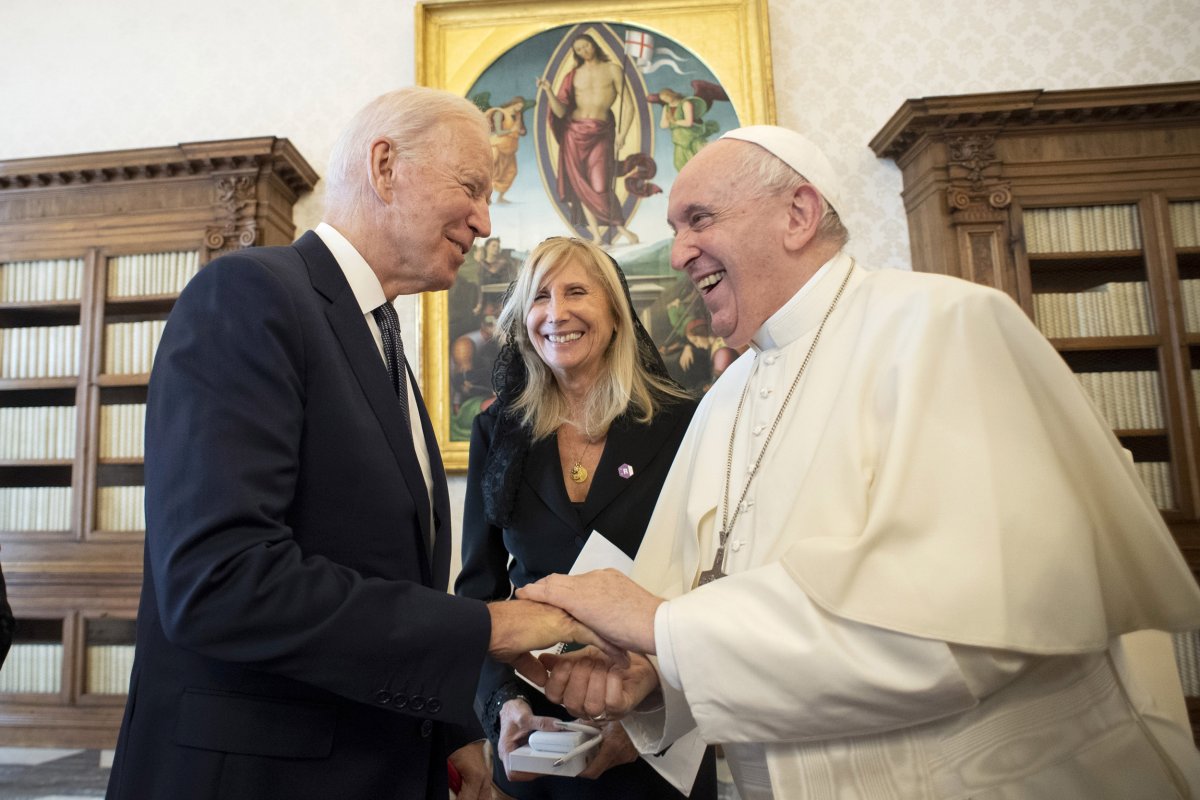
People are assuming the president's telling the truth and that the pope's assent is a subtle message to the Catholic bishops. But if you don't think the pope really said that or meant anything close to it, then he's not really sending any kind of message to the bishops.
If he wanted to send a message, he would have done something much more clearly.
If President Biden were standing in front of you right now, what would you say to him as one Catholic to another?
God's given him a very grave responsibility and with a great position to effect good. Take our Catholic vision of human dignity in every stage of life and in every condition of life, and let that inform his public policy decisions with this consistent ethic of life. Every human being has equal dignity, and that must be respected.
Let me ask you about your relationship with Speaker of the House Nancy Pelosi, whose district lies within your archdiocese. Have you talked in private with her in the past year or two or tried to do so?
Well, with the pandemic, you know, it's been hard to meet in person. So I have had a telephone conversation with her but I'm hoping that, as we are beginning to emerge from the pandemic, I'll be able to have another in-person meeting with her.
Any hope that that she might see things your way or change her views?
I'll do what I can to help her understand the dignity of life in the womb and affirm her for the good things she does. In terms of trying to promote a comprehensive vision of human dignity in all stages and all conditions of life, that would be my priority. She's always been respectful to me when we've spoken in private, and she has shown that same respect in public.
You have said it's possible to exclude pro-choice Catholic politicians from the reception of Holy Communion; you wrote a pastoral letter last May explaining your reasoning. Do you intend to carry it out?
This is something that no bishop wants to do, myself included. But protecting the integrity of the sacrament and standing for really basic fundamental human rights sometimes would require that. But before I would act, I would want to be absolutely sure there's no other recourse to repair the scandal and to help move person down the path of conversion. I would have to be absolutely sure all other possibilities have been exhausted.
Have you up to this point excluded anybody in the archdiocese from Holy Communion?
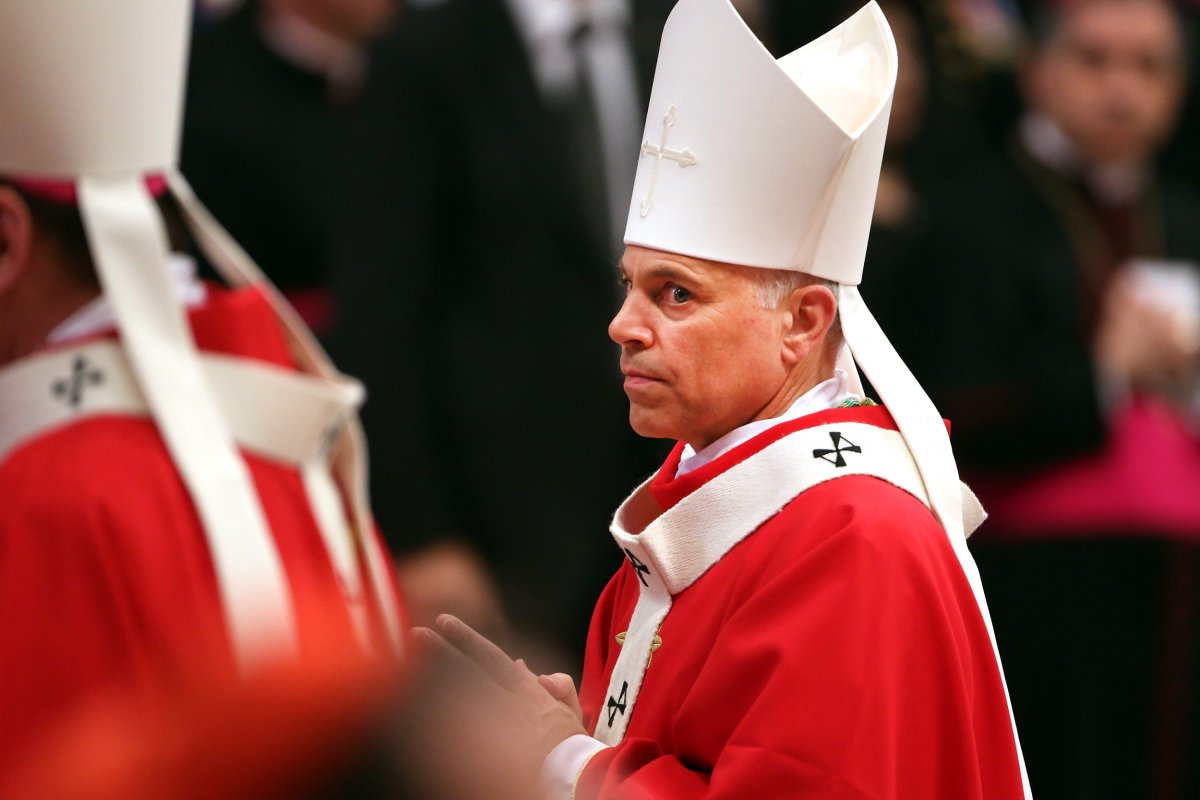
No, I haven't declared anyone should not be given Holy Communion, but I try to teach about basic principles of the faith; about what it means to receive Holy Communion and being properly disposed and so forth.
Can you explain the concept of "scandal" to a secular audience?
Scandal is public example that can lead people into error or lead them into sin. And what seems to be happening here is the creation of a lot of confusion in the minds of people on what the church really thinks specifically on this issue of abortion—and possibly other issues too, but certainly this one. It's such a hotly contested issue in our society and some people are confused. In fact, I was interviewed some months ago by a reporter for a secular media source, not a Catholic one, who asked me: is it possible to be a good Catholic and favor abortion rights? So, I mean that's an example of how this is creating confusion in the minds of people. A scandal is a public example that leads people into error or into sinful behavior.
When you say "scandal," are you, being a canon lawyer, referring to canon law?
The ultimate point of canon law concerns the mission of the church, which is how people get to heaven. Overall, though, canon law has a lot of purposes. The area of penal sanctions, for example, is meant for the correction of errant Catholics; canon law also helps to provide good order in the church, help to ensure that people are properly disposed to receive the sacraments, ensure the integrity of our Catholic educational system and other such purposes. There's a lot of things that canon law touches upon, but it's all to serve the overall mission of the church, which is the salvation of souls.
At their annual meeting in Baltimore, U.S. bishops will discuss a new document on the Eucharist. The Pillar, a news site about Catholic issues, recently said there will be nothing about whether pro-choice politicians should receive Communion and no recommendations for how to deny the sacrament. Is this true?
From the outset, the document was envisioned to lay out the principles of Catholic belief in the Holy Eucharist, so it's not going to mention anyone by name. It will mention maybe a few examples of serious evils, but it's not going to single out any one evil from all the others. I think it will lay out the principles and then people can understand how those principles apply in different situations, including Catholic politicians who promote abortion rights.
Do you think it's going to have recommendations for the denial of Holy Communion in certain cases?
First of all, while it's not inaccurate to call it a denial of Holy Communion, what it really is, is a declaration that the person is not to be admitted. It is more a declaration of fact because of the situation the person is in, rather than imposing a penalty as would be an excommunication. To be honest, I cannot remember now exactly what it said in the last draft that I saw, if it speaks explicitly about people not being admitted to Communion or not.
Drafts of the document have been sent out to the bishops. Did you submit any modifications?
I submitted a suggestion. I think it's important to note that this whole idea—we're using this phrase "Eucharistic coherence," which means that people have to be living their Catholic faith in a certain way if they're going to receive Communion. It's different from the Protestant notion of Communion, which is more like a table fellowship. So, for us, it's a sign of communion with the church as one accepts what the church teaches, believes it and is living their lives accordingly.
This phrase comes from a document of the Latin American Bishops when they met in Aparecida, Brazil, in 2007. It was kind of a big summit for evangelization, how to proclaim the gospel in their part of the world. And the phrase comes from one section of that document, which speaks about legislators, heads of government and health care professionals, if they violate human dignity. And it mentioned, specifically, as examples: if abortion and euthanasia and other grave crimes against life and the family are encouraged, because we have to adhere to Eucharistic coherence, they cannot receive Holy Communion and at the same time act against human life and dignity. So, we get the phrase from that section of the document, one of whose main architects was the Archbishop of Buenos Aires at the time: Cardinal Jorge Mario Bergoglio, now Pope Francis. So I suggested that we include some reference to that, because it's kind of part of the inspiration that we had in initiating this document.
Do many Catholics have a pretty shaky grasp on what the Mass is all about?
That's one reason we want to issue this document. We've also initiated a process we're calling "Eucharistic revival," to reignite peoples' faith in the Eucharist. We recognize this is a serious problem.
It feels like there are two Catholic Churches in the United States, one drawn toward the left and the other toward the right. Do you see things that way?
I see a lot of secular thinking, and it's kind of affecting the way people think in the church. And I do see this causing divisions within our own church. I would say as far as the bishops go, it's more disagreements than divisions. The disagreements may be on what the best pastoral strategy is. For example, all bishops know abortion is a very serious evil. No bishop is going to disagree with that. But what do we do with that? You know, how do we handle people in public life who deny the inviolable human dignity of life in the womb? What about so many Catholics who think abortion is acceptable? Also, how do we help people understand that there may be some disagreements among bishops about strategy, but on the level of the principle there isn't. I see in mainstream Catholics that so many of them find abortion acceptable. This kind of secular way of thinking has invaded how they view the issues. So I am concerned about that and the division that's creating.
What you've said about abortion, not to mention gay marriage and morality clauses for those who teach in archdiocesan Catholic schools, has made you quite unpopular in some quarters. At one point, there was a full-page ad in the San Francisco Chronicle from 100 prominent Catholics calling for your removal. What has this cost you personally?
Well, obviously it is not very pleasant. But I have a lot of reflections on that. First of all, isn't this what our Lord promises in the gospel? He says quite clearly in the Gospel of St. John: "If the world hates you, know that it hated me first." He says, if we're persecuted for the sake of righteousness, we're supposed to rejoice. So, this is very biblical.
Another thing is the difficulty that comes from a kind of a stereotype that is created. And I found that sometimes people have a media image that's quite different from what they're really like. I first discovered this a long time ago, when I was studying in Rome, when then-Cardinal Ratzinger—you know, later Pope Benedict XVI—came to speak where I was living during my graduate studies. And, you know, he had this reputation of being the "Panzer cardinal," "the pope's Rottweiler," the doctrinal enforcer. But in person he is so gentle, so grandfatherly and an excellent listener, and witty, and it was a complete opposite of this media image of him.
So that's been hard, having this kind of image of what I'm like, and I don't think I'm quite like that. But there's this image, and because there's so much rhetoric and personal attacks in the culture now, it's hard to have reasoned serene conversation around these controversial and volatile issues. So it's hard. But on the other hand, I meet all kinds of people who thank me for what I'm doing, and are supportive a lot. Most of them are not in positions where you're going to read about them in the news. But I mean, the hard-working everyday people I meet all the time are very, very supportive of this. So I try to think about the people who are feeling supported, and trying to live the way we've been taught and who understand what's going to make for a healthy society, despite the opposition they're feeling. I feel an obligation to support them.
How have you been misinterpreted? Like the Ratzinger of the West Coast?
Again, I don't want to compare myself to him, to Cardinal Ratzinger. I just use that as an example of how sometimes people have a media image that's very different from what they're like in real life. For example, when I go visit parishes and meet people face-to-face, they sometimes say something like, "Oh, Archbishop, so nice to meet you. You're so different in person."
Like you're some sort of Zeus-with-a-thunderbolt person?
Or a monster.
How do you go about changing your image?
Personal relationships. I try to meet as many people as I can. I really enjoy connecting with people, even if we have disagreements on some things. There are other things we can work on together. I always try to see the good in people and recognize good will and build upon that. It's the personal interaction that's the key.
Do you meet with your enemies very often?
Well, I don't know if I would use the word "enemies."
Opponents, politicians, some gay community members: people who have opposed you.
It's more like, when we can partner with people to work on issues like, say, homelessness, or other programs to help the poor, we focus on that rather than what divides us. Sometimes when the opportunity presents itself for me to have that kind of a serene conversation with someone who might disagree on some of these issues, I do that. It really helps to get to know people, and to listen to their story. I've done a lot of that, to try to listen to people's stories. It's so important to understand the perspective other people are coming from and kind of bracket for a while trying to change their mind, and instead try to understand them.
You commissioned a Requiem Mass for the Homeless earlier this month. How did this come about?
Three years ago, during a meeting of the archdiocesan Department of Human Life and Dignity—the Department of the Archdiocese that works on key social issues—they decided we should have a memorial Mass for people who have died homeless. As Catholics, we believe that our prayers can help people after they've died on their way to heaven, and November is a time when we especially focus on that. We celebrated a memorial Mass for the homeless a couple of years ago, but not last year because of the pandemic.
Meanwhile, I had established a liturgical institute here, and one of the things we're working on is commissioning new Masses of sacred music with special themes. I got the idea that, if we're going to be doing this Mass every year for people who have died homeless, this should be one of those Masses. So, we commissioned our composer in residence, Frank LaRocca, to compose a special Mass of sacred music for people who have died homeless. I asked him to somehow convey through sacred music the sense of life on the streets, the chaos and the fear and instability. We need to recognize that people who are homeless are not a problem to be solved. They have equal claim to dignity, and we need to affirm that dignity.
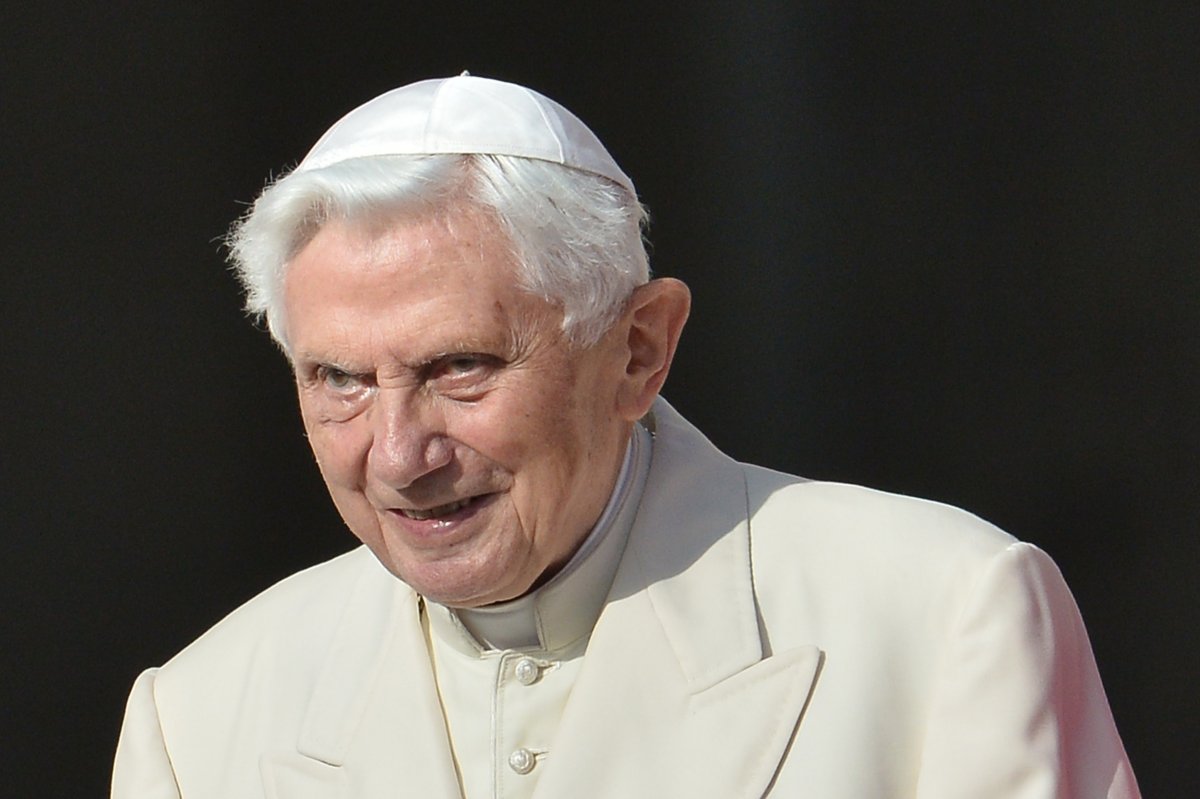
What do you think about the mainstream media treatment of you?
I think in their own mind, they're trying to be fair and objective and to be honest. I don't think it's that far off base. Sometimes they miss the context or some nuance. I don't think it's as bad as some of my supporters think it is.
Is there anything you'd like to add?
What the church is doing is truth, beauty and goodness all working together. At the Requiem Mass for the Homeless, we had different faith-based agencies and also city officials who are helping the poor. We have our own Catholic Charities, and we have an interfaith coalition that our cathedral participates in. So, there's so much good that's being done. I'm proud of what my church is doing in the area of education; trying to support our schools, especially our schools in lower-income neighborhoods. It's a struggle to keep them open but it's really a lifeline for so many of these families. So, I'm proud of what my church does.
Uncommon Knowledge
Newsweek is committed to challenging conventional wisdom and finding connections in the search for common ground.
Newsweek is committed to challenging conventional wisdom and finding connections in the search for common ground.
About the writer
Julia Duin is Newsweek's contributing editor for religion, based out of Seattle. She covers faith groups, trends and religion's many ... Read more
To read how Newsweek uses AI as a newsroom tool, Click here.



